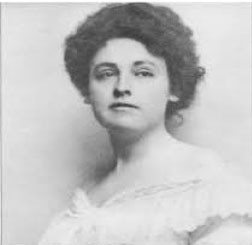150W History Project aims to chronicle Berkeley women
Suffragists, lawmakers included in legacy of female pioneers
March 3, 2020
California women won the right to vote in 1911, nine years before federal law recognized women’s suffrage in America. This was due, in part, to the work of UC Berkeley suffragists who fought for rights and resources that women on campus have today.
That history, which the campus is commemorating in a yearlong celebration, “150 Years of Women at Berkeley,” or 150W, for short, is being compiled through the 150W History Project, a comprehensive online archive that tells the stories of Berkeley women who have studied, worked and researched here.

Catherine Gallagher (UC Berkeley photo)
“Berkeley women have always organized to get the things they wanted,” said English Professor Emerita Catherine Gallagher, who is co-leading the project. “Student activism is the story of Berkeley. Things were not just given to them, they had to fight for it.”
Currently, the project includes historical photos, watershed moments, “firsts” by Berkeley women, a timeline of women in Cal sports and major public service contributions by female students and alumnae.
“I’m being educated through this process myself,” said project co-leader Sheila Humphreys, who previously was Berkeley’s director of diversity in the Department of Electrical Engineering and Computer Sciences. “But it’s part of educating the campus community, telling stories that aren’t well known.”
Choosing the courtroom over the classroom

Bay Area suffragettes in the early-twentieth century. Many UC Berkeley women were active in these local groups during the 1911 California campaign for women’s suffrage. (Photo courtesy of Wikimedia)
One of those stories, Gallagher said, is about Laura Gordon, a woman suffragist who in 1879 fought to be the first woman admitted to Berkeley’s first law school, what is now called the UC Hastings College of Law in San Francisco.
After initially being denied admission, Gordon, a journalist at the time, lobbied in 1877 for passage of a landmark state bill, first drafted by fellow suffragist Clara Foltz, permitting women to practice law in California.

Laura Gordon (UC Berkeley photo courtesy of Bancroft Library)
Two years later, the two women appealed to the California Supreme Court in a case against Hastings, which Gallagher said made legal history by inserting into the state constitution the phrase: “No person shall be debarred admission to any of the collegiate departments of the State University on account of sex.”
Though Gordon won the case and was accepted to the school, she had already learned enough through court proceedings to become the second woman admitted to the California bar, without attending UC Hastings.
“So, at the time, a woman could work as a lawyer, but could not vote,” Gallagher said. “That was an absurdity that Gordon and early suffragists pointed to during the movement.”

Mabel Craft (UC Berkeley photo courtesy of Bancroft Library)
Gordon’s efforts secured the rights of California women to enter any state university of their choice.
Another Berkeley trailblazer noted in the 150W History Project is Mabel Craft. As a graduating senior in 1892, she challenged the UC’s decision not to award her the University Medal. Gallagher said Craft “made a big stink” after learning she didn’t have the highest grade point average because she had not been allowed to take a “men’s only” Junior Reserve Officers Training Corps course.
“It was a real local scandal,” Gallagher said. “(Craft) went to the San Francisco Examiner and said, ‘Look, the university has found a way of cheating and giving men an advantage. I should be getting this medal.’”
The public controversy caused the young man named as the medal’s recipient to decline it, and Craft was awarded the honor at graduation. She would go on to become one of the first female graduates of Hastings and a press director for the successful 1911 California suffrage campaign.
A legacy for future generations

Berkeley’s campus community participated in the September 2019 climate change protests. Here are students at Sather gate. (UC Berkeley photo)
Gallagher said the history project is an opportunity to not only highlight Berkeley women like Craft and Gordon, but also to acknowledge Berkeley’s history of providing equal rights for women on campus.

Read more stories about UC Berkeley’s commemoration of “150 Years of Women at Berkeley.”
“There has been progress, and there have been setbacks,” said Gallagher. “For students on campus today, in learning this history, they can realize it wasn’t always like this, and that women had to fight for it to be this way.”

Sheila Humphreys
Gallagher wants the campus community and alumni to contribute to the project’s growing archive of content. She said departments can help by updating on their websites the history of campus women in their academic fields and by submitting names to the project of impactful female faculty members.
Humphreys said 150W events will also be held to complement the rich history that 150W will be compiling throughout the year.
On March 12, the 150W committee will co-sponsor an event by author and women’s suffrage historian Robert P.J. Cooney Jr. titled “Winning the Vote: The Triumph of American Woman Suffrage Movement.” Cooney Jr. will explore three generations of suffragists who fought and suffered to win the vote for women in America.
Another 150W event held on March 19 will be a Bancroft Library roundtable exploring women’s suffrage campaign through memorabilia from California’s hard-won victory of 1911.
“I think there’s a renewed vigor and energy and commitment toward all kinds of diversity, including for women,” Humphreys said. “But we need to know that history to understand how to move forward.”
Submit content to the 150W History Project here.